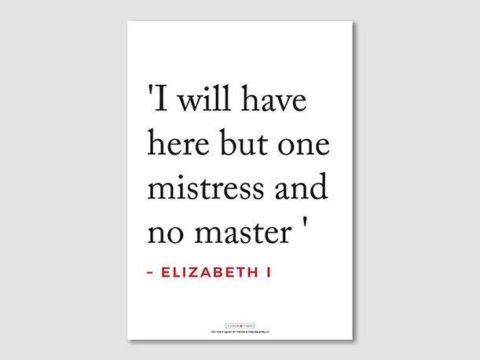Margaret Tudor: Life Story
Chapter 18 : Margaret Loses Control
Margaret’s husband was right to fear the influence of Henry Stewart. He was promoted to Captain of the Guard, and in early 1525, Margaret again sent messengers to Rome in search of an annulment of her marriage. The bizarre grounds she cited were not compulsion to marry, nor that Angus had previously been pre-contracted to Lady Janet (presumably he would have denied it) but that at the time of the marriage, James IV was still alive.
Albany was now a widower, and the English feared that the old project of marrying him to Margaret might once again be floated, especially as his French auxiliaries still controlled the castle of Dunbar.
The continuing feuds were causing Scottish government to break down. In order for the government to be able to consider the answers that the English had given to Cassilis during his embassy, it was necessary for all the lords to hear their report. Margaret was therefore requested to issue orders that no one coming to Edinburgh to serve the king was to be imprisoned or hurt in anyway, that no-one was to be fired upon from the Castle without orders from the whole Council, and that Margaret and James were to lodge at Holyrood.
Margaret refused to accept these conditions or any reconciliation with Angus, and matters deteriorated. In January 1525, Angus, Argyll and Lennox, together with Beaton, requested a convention to be held at Stirling, declaring that no orders were to be obeyed except those issued by the Council or Parliament. They simultaneously informed Henry that they would be glad for Margaret to be head of the Council, if she would only accept that they were sincere in their loyalty.
The Estates reconvened in February and agreed that Councillors should be chosen for the King. Margaret’s requests for Angus and Lennox to be declared traitors for their part in the disturbances of the previous November were rejected.
Margaret, seeing her authority slipping away, appeared to be willing to compromise. She set out her conditions for receiving Angus back into favour – they mostly consisted of her having control of James, with the support of Lords to be chosen by her advice; for her to have sole disposal of benefices below £1,000 per annum, and principal say in those above and to have control of international affairs.
Whilst her terms were more or less accepted, and it might have seemed that matters would now run more smoothly, Margaret wrote secretly to Albany, to inform him that, rather than be reconciled to Angus, she would leave the country, or, alternatively ally with France against anyone except James.
Despite the apparent secrecy of this letter, Henry got wind of it and sent Magnus to Margaret with such a severe letter that ‘it was an hour before she could stop weeping.’ The envoy thought that she had been so frightened by Henry’s threat to withdraw all money and support that she would ‘reform’, as according to him, it was only her relationship with her brother that gave her any influence at all in Scotland.
He gave it as his opinion that she was bringing James up badly, encouraging him to ‘look down and glowme (glower)’ upon anyone who had displeased her. Angus took the opposite tack, by keeping James amused with hawks and hounds, although the boy’s loyalty was obviously to his mother, as he asked Angus to consent to a divorce.
It appears that Margaret was now on sufficiently good terms with Angus to satisfy the requirements of the Lords, and for him to be appointed Warden of the Marches, but she would not live with him, and remained determined to have a divorce. Angus was still resisting, although it was mooted that he could take advantage of a divorce to marry the daughter of the Earl of Argyll and cement their alliance.
By June 1525, Angus was reporting to Henry that Margaret was openly living with Henry Stewart, at Stirling, and by August, he appeared to be in control of Edinburgh and of the Estates. Margaret had refused several requests to return to Edinburgh to attend the summer parliamentary sessions and it was rumoured that she was keeping out of public view because she was pregnant by Stewart.
Given that Margaret had been so determined to uphold her position as head of the government, it is difficult to imagine what could have kept her from parliament, other than illness or pregnancy, but there is no evidence of a child being born. Henry VIII, no stranger to the delights of adultery or the temptation of divorce, told the French ambassador that ‘it was impossible for anyone to live a more shameful life than [Margaret] did’.
With her non-attendance at parliament, the opportunity was taken to deprive her of her control of the King, who was to be supervised in rotation by different lords, including Angus.
Margaret’s suspicions of Angus were proved to be well-founded, although, perhaps if she had made more effort to work with him, matters might have turned out differently. When it was the Earl’s duty to relinquish control of James, he refused, keeping the King firmly under his control for nearly three years. All his household officers were replaced by Douglases or their adherents.
Margaret, Queen of Scots
Family Tree




